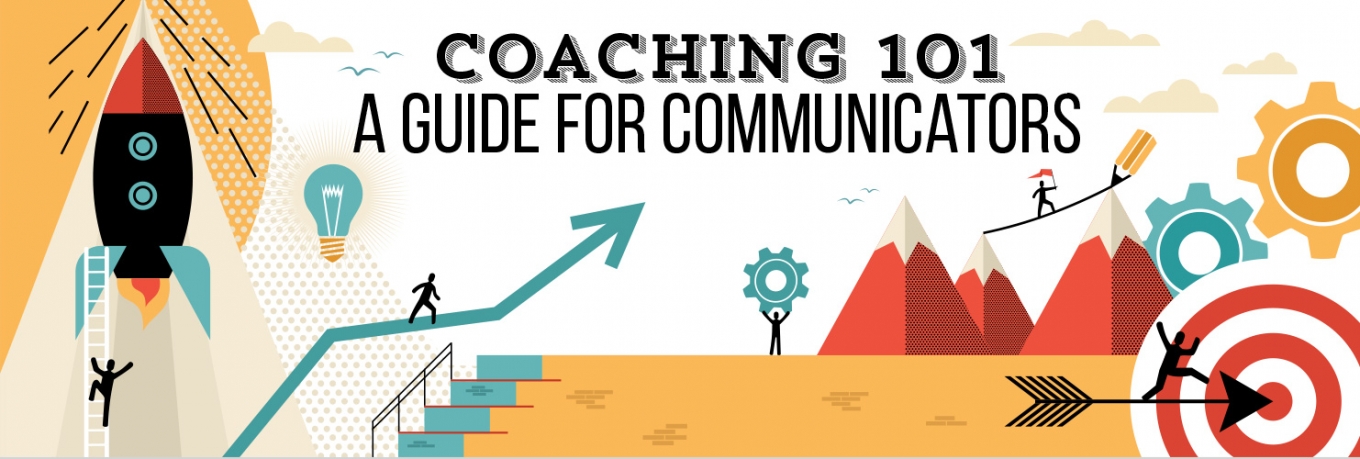Being a communicator can be pretty awesome. We get to wear many hats whether it’s writer, event planner, technology guru (where budgets allow of course), confidant, mediator, strategist…the list goes on. And now we’re adding another one: coach.
Imparting wisdom to other human beings can be scary. But if our role continues to evolve from that of creator to curator, we need to be open to sharing our breadth of experience with others around our organisations.
There are lots of courses and qualifications out there if you want to become a professional coach. But what we’re talking about here is the basics we can all hone to share the skills and knowledge we already have.
And that’s really key; we already have the skills and knowledge. Coaching is obviously beneficial to the person receiving it, but it’s also a good exercise for the coach to take stock and realise just how much they do know about their chosen profession. So here are our top coaching tips to get you started…
Listen
Don’t just hear what people say. Really listen. That means not coming into a conversation with your mind made up, and not thinking about what you’re going to say next while the other person is still talking. Yes, you have lots of experience and certain things worked for you, but it’s important to properly listen to the challenges the other person is facing.
Use your experience to inform your response, not to be the response.
Recognise everyone is different
There will be some people that just want to be able to bounce ideas off you, such as “what do you think about doing a flash mob to launch a campaign”, or “can you look at my comms plan to check I’ve covered all the relevant audiences”. Others however will need you to hold their hand at every step. While we don’t recommend your full time job becomes coaching one employee, it’s about recognising they’re that type of person, and you need to start by helping them build their confidence. Encourage them to give things a go and provide constructive feedback. Which leads us nicely on to…
Feedback
We all know that feedback, whether about a person, project event etc, is invaluable to help us improve. But how many of us actually take the time to reflect and ask others for their honest opinions? It’s the same with coaching, it’s very easy to get caught up in giving advice and not checking in to see how it actually worked out. And sometimes the advice you give won’t work. And that’s ok, it’s understanding why that’s important.
Honesty and trust
Ultimately few people benefit from hearing what they want to hear as opposed to what they need to hear. As a coach it’s your job to bring a different perspective and deliver honest feedback. And it’s also about being honest with yourself. You don’t have to have all the answers – recognise when you need to bring in other people with skills and experience you don’t have. It’s the mentee that’s important, not your ego.
An honest relationship will lead to a trustworthy relationship.
The most successful partnerships are based on trust and whoever you are coaching needs to believe that you have their best interests at heart.
Embrace failure
One of the main ways you get experience is through failure and learning from it. Encourage people to embrace failure and to be bold and try new things. And if it doesn’t work out, take time to understand why and do it differently next time.
Empathy
It may seem obvious, but to be a coach you need to like the person you’re coaching, want the best for them and be able to empathise with the situation they’re in and they type of person they are. While to you posting a blog is second nature, for someone else posting their thoughts in a public arena is a terrifying concept. Adapt your approach accordingly.
Put jealousy aside
The ideal outcome when coaching someone is that they improve. The trick is to not see their success as a threat to your own, but a compliment to your coaching skills. It’s human nature to feel stabs of jealousy from time to time, but as a coach you need to be comfortable with helping others take the spotlight and shine.
It’s now time to take your coaching hat and put some of this advice into practice. Remember coaching someone whether as part of a mentoring scheme or on an ad hoc basis as part of your comms role is not only rewarding, but a privilege. It can also be a lot of fun, so what are you waiting for?
By Helen Deverell for Alive
















